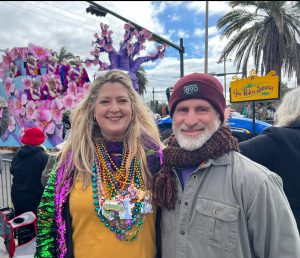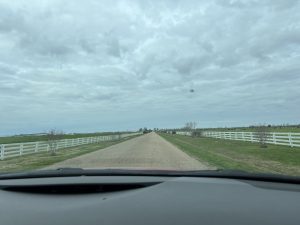When I was invited to speak to the poetry group at Louisiana State Prison (it’s known as Angola, and sits on 18,000 acres of former plantation), I said yes immediately, before I knew what to expect. My visit was scheduled for February 15, 2024, which was just a few days after Mardi Gras. So when I went to my cousin’s house on Fat Tuesday for smoked turkey gumbo and a chilly walk to watch the Krewe of Rex, revelry was not at the front of my mind. I was dressed the part—Mardi Gras sequin jacket, purple mirror shades, and a go-cup Bloody Mary, but I couldn’t help but wonder what I could possible offer to this group locked in one place and so far outside the celebrations of the world.

It wasn’t nerves or fear—I just couldn’t think of how I might make the visit meaningful. When people hear you are visiting prisons the knee jerk reaction seems to be to make jokes about it, and my family was no different when they learned where I was headed in a few days. I had permission from the warden to bring in a single book. After lots of deliberation, I decided on a book about writing and reading poetry: In the Palm of Your Hand by Steve Kowit. I copied poems that I thought we might discuss on leftover whitespace in the book, including some haiku by Basho and Issa from my favorite Robert Hass translation, and the poem “N’em” by Shreveport native and poet extraordinaire Jericho Brown.
The group was like any other library group—they had the chairs in a circle, pens and pads of paper, refreshments in the form of coffee, water, soft drinks, and chilled slices of a delicious carrot cake. There was a photographer and reporter from The Angolite there, and after introductions we got to the serious work of poetry and their questions for me.
It was a an overcast, gray February day in West Feliciana Parish—It could not have been further removed from the vibrant colors and moods of Mardi Gras just a few days earlier. There’s not much color to be seen inside or outside–it’s not a stretch to describe the whole stretch of that prison as black and white–and the prison environment accentuates those dull tones (concrete, fencing, razor wire, varying shades of denim, dead grass), but every so often I noticed a bird passing in the frame of the window. It was thrilling to see. Not the bird itself, which was just the color of asphalt in the parking lot, but the fact that I didn’t know when to expect it. There was no pattern, no schedule to that to and fro. But at the same time, the square of that window was so full of things to see—the pattern of the wire, the occasional bird, hints of wind outside, the lighter gray of clouds. Being a poet is all about noticing what others might overlook, and building something with what may seem like a paltry collection of observations. An idea like that is abstract and people on the outside need convincing that it is true. In that room at Angola it was common knowledge. I don’t know why I was surprised, because I was in the company of poets.

